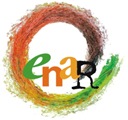
23 October 2015: 3rd Conference on Ethnicity, Culture (and Social Class): “Origins” and Business
This third European Diversity Conference entitled “Beyond the business case for diversity: Using ethnic diversity as a case in point” is organised by ENAR in partnership with L’Oréal, the French Association of Diversity Managers (AFMD) and the ENAR Foundation.
 |
 |
Beyond the business case for diversity: Using ethnic diversity as a case in point
23 October 2015
L’Oréal Headquarters, Clichy, France
Diversity conferences are trendy everywhere in Europe. Some address specific issues, others are more general. But many of them have a common feature: they bring together people who share similar ideas. These people are invited to sit and listen to a limited number of companies boasting about how good they are in managing diversity and creating opportunities for growth. But what about you?
– Are you tired of being passive during business conferences on diversity management?
– Are you ready to swap roles and become a driver of change rather than a listener?
– Are you ready to address serious and difficult issues by mobilising your own expertise and harnessing the collective intelligence present in the room?
– Are you willing to set in motion your imagination and creativity for one day?
Then this conference is for you! You will be encouraged to:
– contribute actively to the discussions,
– reflect on your own practices,
– design and co-create concrete solutions for the greater inclusion of ethno-cultural minorities in the workplace,
– As well as take inspiration from concrete good practices that offer solutions to go around the usual resistance on this issue.
Our core idea
Research suggests that diverse teams can be more innovative, creative, and thus even more productive, and the reality of Fortune 500 companies seems to echo these findings. Companies such as IBM have spent considerable energy and resources to establish a diverse and inclusive company. By the end of the 1990s already, three out of four Fortune 500 Companies had launched a series of programmes aiming at addressing, enhancing and promoting a diverse workforce. This sounds promising at first sight, and might even be relevant during times of economic prosperity, but how does the picture look after a decade of contraction of European economies? Does the business case for diversity have the same pull-effect for organisations to manage diversity when there is no realistic forecast of improvement before another decade at least?
On the road again scouting for “Good practices”
Many businesses announce that “Diversity is in our DNA”. We welcome this statement. Now, prove it! Would you be interested in sharing the business case for ethnic & cultural diversity developed by your company?
To present your good practices during the Market Place, please contact Joel Le Deroff: joel@enar-eu.org. We are happy to provide flight and accommodation to promoters of internal good practices matching our criteria so that you can share the good work you do to a wide audience of practitioners.
ENAR conferences strive to make use of the most innovative, participatory and result-oriented methods. Expect some surprises!
Registration
Deadline for registration: 16 October 2015
Participation upon registration only.
Detailed provisional agenda
9h00-9h30: Registration – coffee and tea available
9h30-10h00: Welcome words
– Stephanie Oueda, L’Oréal
– Sarah Isal, ENAR Chair
– Mansour Zoberi, AFMD Chair
Message from
– Jutta Steinruck, Member of the European Parliament
Introduction to the concept of the conference
– Pascal Hildebert & Michael Privot, ENAR
10h00-12h00 : Fishbowl: Are diversity gains at risk, due to the global economic crisis and austerity? Do we need new approaches, which go beyond the business case for diversity?
The fishbowl aims at discussing if there is a backlash of diversity gains in the organizational context, due to the economic crisis. What impact does the global economic crisis have on the business case for diversity? Do we need new approaches beyond the business case? What could such approaches look like? Has the attitude of businesses in regards to the business case for diversity changed over the years, particularly in the light of the global economic crisis? What does this mean for race and culture in the workplace?
– Mustafa Özbilgin, Brunel University, Brunel Business School London
– Audrey Campbell, Ernst & Young UK (tbc)
– Patrick Gohet, Adjoint au défenseur des Droits, CNCDH
– Galina Shishkova, CSR-Europe, European Charters for Diversity
12h-13h: The Market Place: Presentation of Good Business Practices
Presentation of good business practices that illustrate original/innovative solutions put in place by or with businesses, which demonstrate an efficient business case or which seek to go beyond it.
– Jean-Michel Monnot, Sodexo
– Geoffroy Murat, Nicomak
– Simona Nedyalkova, Justice 21
– Aksiniya Gencheva, Hewlett Packard
13h-14h: Networking Lunch
14h-15h30: Working Groups: Diving into co-creation: devising collectively innovative approaches beyond the business case, laying down a revamped role for businesses in promoting diversity in the workplace.
1) Building a business case for the diversity of origins tailored to your company: does it help? Reflecting on other business cases
2) We did a great business case, but… Challenges of implementation of business cases: brakes, leverages, systemic issues, allies and opponents
3) A business case is just red tape. What could authorities, civil society do to help moving forward?
15h30-16h00: Feedback from Working Groups
16h00-16h20: Networking break
16h20-17h15: Different Perspectives: the role of business in promoting the diversity agenda at work – Next Steps
Different stakeholders will present their perspectives on how business can fill arising gaps in governmental governance, in regards to promoting diversity in the workplace.
– Dr Olivia Kyriakidou, Athens University of Economics and Business, Greece
– Business Europe representative (tbc)
– Kelly Grossthal, Estonian Human Rights Centre/Estonian Diversity Charter
– Laurent Depond, Vice-Chair of AFMD, Orange (tbc)
Concluding words
– Andreas Hieronymus, ENAR Board member
With the support of the Rights, Equality and Citizenship Programme of the European Union, the Open Society Foundations and the ENAR Foundation
More on ENAR’s Equal@work Platform



